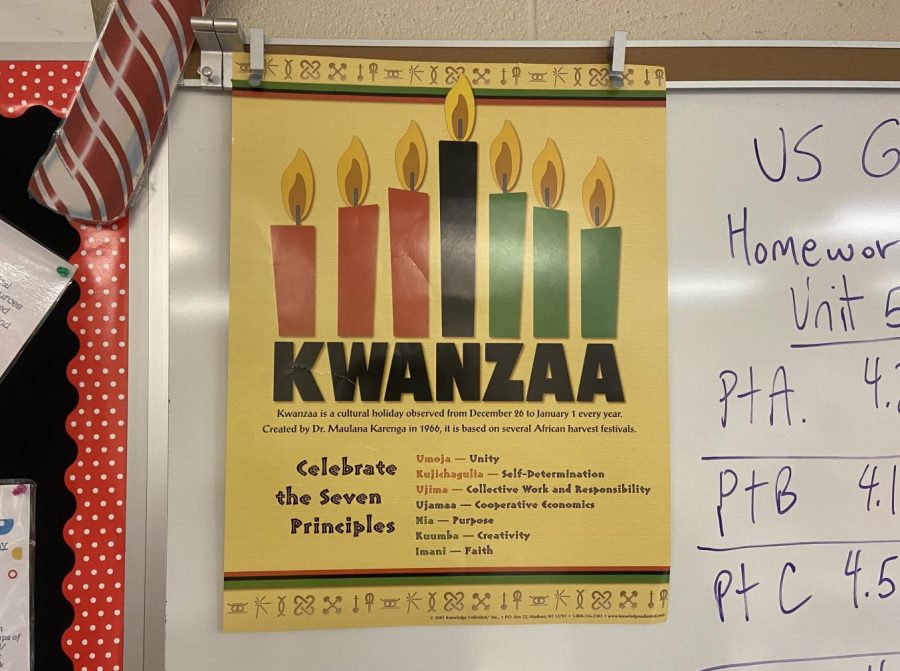Holidays other than Christmas
December 21, 2021
Hanukkah is the Jewish holiday also spelled as “Chanukah.” The holiday lasts eight nights and days, starting November 28 and ending December 6 of the current year. It’s also known as the Festival of Lights or the Feast of Dedication. According to Abc 7 News, “Rabbinic tradition states the victorious Maccabees could only find an amount of oil to keep the commemorative Menorah lit for one night. However, the Menorah miraculously stayed lit for eight nights.” and “Hanukkah celebrates the rededication of the Holy Temple in Jerusalem following the Maccabean revolt against the Syrian-Greek army.” During Hanukkah the most common tradition is lighting the menorah. According to Better Homes & Gardens, “Eight candles symbolize the number of days that the Temple lantern blazed; the ninth, the shamash, is a helper candle used to light the others.”
According to Abc 7 News, “As the candles are being lit, Judaic blessings are often chanted before and during the process.” Other traditions include giving out a present to someone each night, a game of dreidel, cooked dishes like potato latkes or Sufganiyot, and giving out chocolate gelt coins.
Another holiday in the winter season other than Christmas is Kwanzaa. Kwanzaa is a holiday celebrated by black Americans from December 26 to January 1 of the next year. The holiday is used to celebrate black American culture. According to the University of Pennsylvania, the holiday started in 1966 by Dr. Maulana Karenga for celebrating the first harvest. According to the National Museum of African American History and Culture, there are seven principles of Kwanzaa: umoja meaning unity, kujichagulia meaning self-determination, ujima meaning collective work and responsibility. The others are ujaama meaning cooperative economics, nia meaning purpose, kuumba meaning creativity, and imani meaning faith. These principles are represented by seven candles which have specific colors, three red, one black, and three green in that order. The holiday has the celebration Karamu, which is a feast for family and friends. The celebration is used for rejoicing, reassessment, and recommitment according to the National Museum of African Art and Anacostia Museum.



